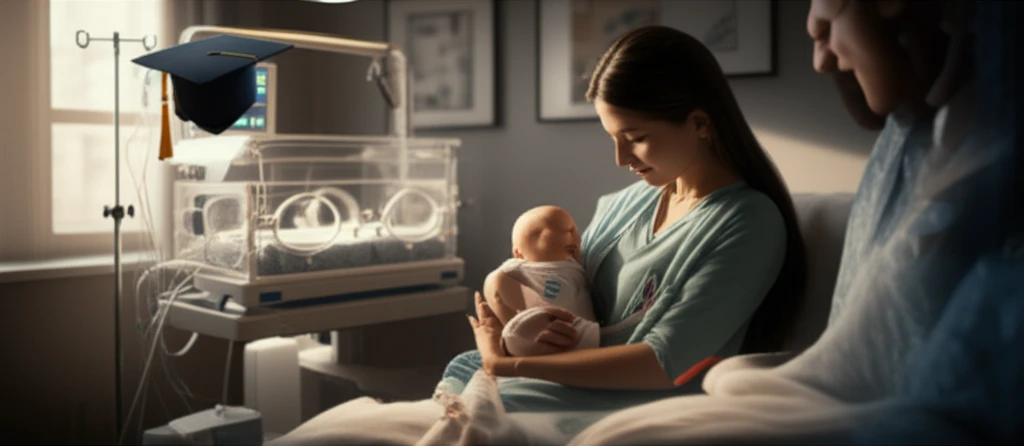
NICU to Home: Simulation Boosts Confidence for New Parents
"Easing the transition: How simulated home environments prepare parents for infant discharge and specialized care."
The discharge of a newborn from the Neonatal Intensive Care Unit (NICU) is a momentous occasion, filled with both excitement and apprehension for parents. As the departure date nears, many parents find themselves questioning their ability to independently manage their infant's healthcare needs in the home environment. The constant support of NICU nurses is no longer readily available, leaving parents to assume full responsibility for their child's well-being.
Recognizing these concerns, researchers developed the Neonatal Home Environment Learning Program (Neonatal HELP). This innovative simulation program aims to bolster parental confidence in providing care for infants with specialized medical needs, facilitating a smoother transition from the hospital to the home. The program utilizes realistic simulations to equip parents with the skills and confidence necessary to address potential challenges and emergencies.
This article will delve into the development, implementation, and impact of the Neonatal HELP program, highlighting how simulation-based training can empower parents, improve infant outcomes, and revolutionize discharge planning in the NICU setting.
How Simulation Bridges the Gap

Traditional discharge planning often involves extensive information sharing and encouragement for parents to participate in their infant's care within the NICU. However, these activities occur under the watchful eye of nurses, ready to intervene if needed. Parents may lack the opportunity to truly practice and assimilate their caregiving role in a risk-free environment.
- Bringing the baby home: Safely transporting the infant and setting up essential equipment like oxygen and monitors.
- A typical day: Performing daily care tasks, administering medications, managing tube feedings, and responding to unexpected variations.
- Emergency response: Recognizing and responding to apnea, initiating CPR, and contacting emergency services.
The Future of NICU Discharge: Empowering Parents Through Simulation
The results of the Neonatal HELP program evaluation demonstrate the potential of simulation-based training to significantly enhance parental confidence and preparedness for infant discharge. Parents consistently reported feeling more confident in their ability to provide care and respond to emergencies after participating in the program.
While the study highlights the benefits of simulation, it also acknowledges potential barriers to implementation, such as the availability of equipment and trained staff. Academic-practice partnerships between nursing and medical schools and hospital-based NICUs may offer a solution, leveraging the resources of both institutions to provide comprehensive simulation experiences for parents.
As healthcare continues to evolve, innovative teaching strategies like simulation will play an increasingly vital role in empowering parents and caregivers, ensuring a smoother transition to home and promoting the well-being of medically fragile infants. Further research is warranted to explore the long-term impact of simulation on parental confidence and infant outcomes.
